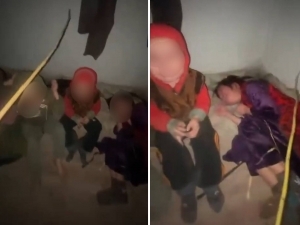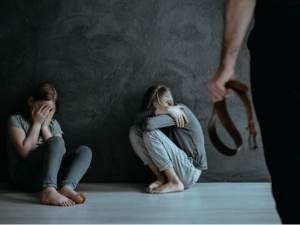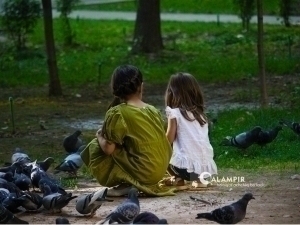Quadrobics: Are children turning into animals?
Interviews
−
29 October 2024 12955 6 minutes
It's good to feed, care for, and be gentle with cats. But what happens when one begins to mimic their actions, living like a cat, imagining oneself as a cat? Such behavior has emerged, and there’s even a term for it—quadrober.
Recently, quadrobers have surfaced in Tashkent. On October 10, a “quadrober” wearing animal masks appeared in the city, and the next day, another quadrober startled passengers by imitating a dog. The incident left a young witness terrified. In response, the Ministry of Internal Affairs issued a warning, notifying that the parents of children imitating animals were cautioned. Initially dismissed as harmless play by two children, the Ministry issued a second warning on October 23, announcing that adult quadrobers would face 15-day detention.
Why is the Ministry reacting so urgently? These warnings and concerns aren’t without cause. Further investigation reveals a growing trend of quadrobering among young people, particularly children, with quadrober accessories now easily available in stores and even promoted.
How did this culture sneak into society? What risks does it bring? And what could be the consequences? QALAMPIR.UZ explores these questions today.
The term “quadrober” is derived from the Latin quattuor (four) and the English “aerobics,” representing a subculture where people, mainly children and teens, emulate animal behavior. They wear animal costumes and masks, often moving on all fours like cats or dogs.
“Many quadrobers today mimic cats and puppies. Initially, they play with animals, then begin to imitate their behavior, seeking attention. Sadly, in advanced cases, quadrobers might go to designated ‘feeding zones’ and even consume animal food. They gradually start behaving entirely as animals and can become animalistic. Cases of quadrobers attacking people have even been reported abroad,” noted independent researcher Ziyoda Akbarkulova.
Quadrobers attribute their interest in this subculture to escaping the pressures of reality. They claim that children with certain personalities struggle to integrate into society, facing harsh judgment and ridicule for minor mistakes. This fear of judgment drives some children to withdraw, feeling isolated and ignored. Experts suggest parents are partly to blame, as they often overlook their children, engaging with them infrequently and failing to guide them through challenging social situations.
“Quadroberism is commonly seen in adolescents, especially those who feel neglected. This issue truly falls on parents. The first quadrober communities have already appeared, even in some Eastern and European countries,” remarked an expert.
This trend also links to children’s desire for support and acceptance. Without finding this within their families or peer groups, children often seek membership in these communities, striving to feel part of something larger and alleviate loneliness. In a close-knit society like Uzbekistan, it may seem unlikely that children would feel neglected, yet quadrober-related products are now easily available. A quick visit to Uzum Market reveals these items being marketed not only for children but also for adults. The rise of quadroberism raises the question: is it acceptable to promote and sell these products?
Many of us wore animal costumes and recited animal rhymes at New Year celebrations. Caring for animals and forming friendships with them isn’t quadroberism; parents must recognize the difference. While animal care fosters love and responsibility, quadroberism involves children viewing themselves as animals.
In Uzbekistan, quadroberism is now classified as a violation of societal behavior standards. According to this classification:
"According to the Code of Administrative Responsibility, non-fulfilment of the obligations of raising and educating minor children by parents or their substitutes, including causing minors to commit an administrative offense, is punishable by a fine of up to 5 times the BCA (up to 1 million 875 thousand sums) will cause tension," said the Ministry of Foreign Affairs.
Also, if the same violations are repeated within 1 year after the application of the administrative penalty, a fine of 5 to 10 times the BHM will be imposed.
Deliberately disregarding the rules of conduct in society expressed in such actions that violate the public order and violate the public order with these actions. Article 183 of the Code of Administrative Responsibility (petty harassment) is punishable by a fine of 3 to 5 times the BCA or up to 15 days in prison. will also lead to imprisonment.
So why are quadrobers being punished? Since they are neglected children, don't they need more psychological help and rehabilitation?
The fact is that if quadroberism is not prevented, many unpleasant situations may arise in society. For example, Toru Ueda, a 32-year-old engineer living in Tokyo, Japan, spent 3 million yen, approximately 261 million sums, to make a real wolf costume. According to the Japanese, he was tired of being a human and felt free when he turned into a wolf.
“When I put on my suit, I feel like I'm not human. I am free from human relations. I can forget all the problems related to work and other things. "When I look in the mirror, I see a wolf, and it's very exciting," commented a man in the form of a wolf.
This situation is not new for Japan. A Japanese citizen who dreamed of becoming an animal before spent 15,000 dollars and became a dog.
In September 2023, about 100 people started barking in Germany demanding that they declare themselves dogs. In addition, quadrobics is booming in Russia and Kazakhstan.
He mentioned Article 77 of the Constitution of the Republic of Uzbekistan. According to this article, parents are obliged to take care of their children until they reach adulthood, their upbringing, education, healthy, complete and all-round development. Also, according to the Law "On Education", the parents of minors are responsible for the child's education, upbringing, physical, spiritual, and intellectual development.
For this reason, the Ministry of Internal Affairs calls on parents to be aware. In accordance with the Code of Administrative Responsibility, non-fulfillment of obligations to raise and educate minor children by parents or their substitutes, including causing minors to commit an administrative offense, up to 5 times the base calculation amount (1 million up to 875,000 sums) will result in a fine.



